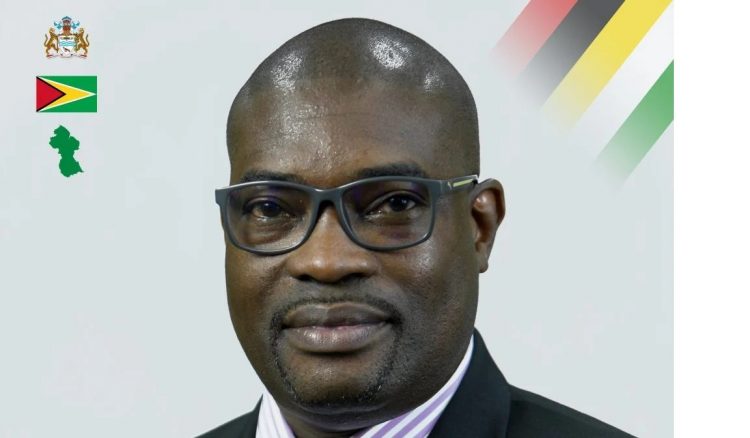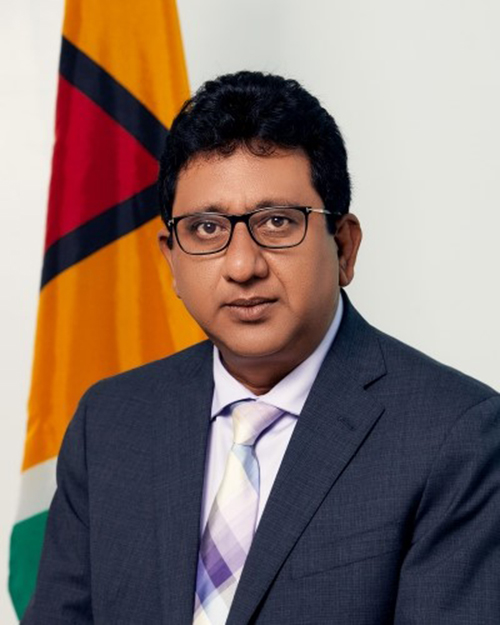Attorney General Anil Nandlall has defended the government’s failure to circulate the proposed budgets for constitutional agencies last year, while blaming the constitutional crisis created by the former APNU+AFC administration for forcing emergency actions to preserve the effective functioning of the state.
Nandlall cites the doctrine of necessity in his submission in response to the lawsuit filed by APNU+AFC Member of Parliament David Patterson, who is contending that budget allocations to constitutional agencies was done in contravention of the law.

In his affidavit in response, Nandlall said that an imperative necessity arose for immediate action to be taken to protect, preserve the effective functioning of the state, because the country was in what he describes as “exceptional circumstances” due to delays in the holding of general elections within the constitutional three-month timeline following the passage of the no-confidence motion against the David Granger-led APNU+AFC government in 2018, and the five-month elections impasse last year before the PPP/C was finally declared winners of the March 2nd, 2020 elections
Such circumstances he says, had not been provided for in the constitution nor contemplated by the framers of the constitution, while arguing that the former government failed to prepare and layover a proposed budget for 2020.
This, he argues, could have been effectively done before the dissolution of Parliament in December, 2019, while noting that the last time a budget was passed was in November, 2018.
Patterson, who served under the former APNU+AFC coalition government as Minister of Public Infrastructure, has advanced that the consideration and approval of budget proposals for constitutional agencies by the National Assembly on September 1st, 2020 was in breach of Section 80 B(2) of the Fiscal Management and Accountability Act (FMAA).
His complaint is that the proposals, which were not made available to his party before September 1st, breached the Act.
Patterson (the applicant), wants, among other things, for the court to grant him a declaration that the budget and/or proposal of the Audit Office ought to have been submitted to Parliament by the Chair-person of the Public Accounts Committee, prior to approval and consideration by the House in accordance with the FMAA.
Crediting the delay to the former government, the AG said that given the country’s financial crisis, the PPP/C government “was forced out of necessity to urgently pass an emergency budget so as to enable the Government to restore stability in Guyana and to offer much-needed relief to Guyanese given the delay in having the 12th Parliament convened and the novel global Covid-19 pandemic.”
Nandlall said that there was an absolute necessity to safeguard the continuation of the effective functioning of the State and that “there was no other course of action reasonably available to the present Government than the passing of an emergency budget.”
Additionally, he said that the government was obligated to “mop up” and bring into the public accounting architecture billions of dollars that were “unlawfully spent from the Consolidated Fund without Parliamentary approval and, as well as, billions of dollars drawn from the Contingency Fund without complying with the lawful requirements,” for which he said the APNU+AFC is also responsible.
“In short, the Government was shouldered with the onerous responsibility of restoring lawfulness and constitutionality to the public architecture which had careened off its constitutional and legal tracks,” the AG deposed.
According to him, in those circumstances, the presentation of a national budget to bring into the accounting architecture “the unlawful spending which had taken place as well as to secure Parlia-mentary approval as is required by the Constitution for spending for the remainder of the accounting year became the Government’s paramount priority.”
He then reasoned that rather than establish Committees in the Parliament and focus on procedural matters, the government out of necessity was forced to bring the state into substantial compliance with the Constitution.
It is in that context and in those circumstances he said, that budget 2020 was presented and passed.
Against this background, Nandlall said that government relies on the doctrine of necessity to justify its actions, even as he contended that Patterson’s suit has been overtaken by events and are now only of academic importance.
According to the AG, the government did not do more than was necessary in the circumstances. “The evil and mischief which was sought to be averted was greater than the evil and mischief caused,” he said.
Against this background, he said that the failure to circulate the Budget Proposals of Constitutional Agencies is justified by the doctrine of necessity.
In the circumstances, he is asking the court to refuse the orders being sought by Patterson.
For lack of compliance with procedure, Patterson wants a declaration that any appropriation in respect of the constitutional agencies pursuant to consideration and approval by the National Assembly on September 1st is null, void and of no legal effect.
In all the circumstances, Patterson wants the Supreme Court to order the Minister of Finance or minister performing those functions, the Finance Secretary, their servants or agents from making or causing any disbursement to be made of any sums in favour of constitutional agencies “purportedly” approved by the National Assembly on September 1st.
Patterson is also seeking an order prohibiting these persons from including the purported budget appropriation for constitutional agencies in the estimates of the public sector in accordance with the FMAA pursuant to the purported approval by the House.






